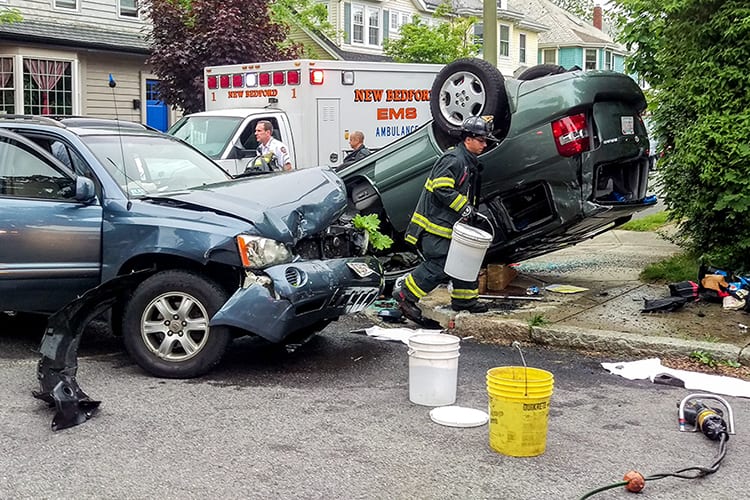
If you are one of the approximately 65,000 unlucky Virginians injured in a motor vehicle accident every year, and if the other driver, or “Defendant,” involved in the accident is charged with a traffic infraction or a criminal offense, you will likely be faced with a confusing chain of legal events. Understanding the interplay between criminal law and civil law and how they each relate to traffic accidents will help clarify how the legal events after an accident proceed and how they could potentially affect you.
The first legal action that happens after an accident is that the Defendant is charged with an offense related to operating their motor vehicle, such as Reckless Driving or Driving Under the Influence. A “First Return” date is then issued to the Defendant on their copy of this Summons. This date is the first court date at which the Defendant must appear, if the Defendant is in fact required to appear in court. Depending on the severity of the charge–a decision that is at the discretion of the investigating Officer–the Defendant may be permitted to pre-pay their offense. For example, if the Defendant is charged with Following Too Closely, under Virginia Code, he or she may opt to pay a fine of $30, and court costs of $51, prior to the court date, and this payment will effectively close the case. If the Defendant chooses this pre-pay route, it is good for your civil claim against the Defendant, which I’ll describe in further detail below.
According to Virginia Code, simple traffic infractions or criminal traffic violations are subject to the same commonly known principle of law: The defendant shall be presumed innocent until proven guilty beyond a reasonable doubt. Any Defendant, whether charged with an infraction or crime, has the absolute right to enter a plea of “not guilty,” “guilty,” or “nolo contendere” (no contest). But why does that matter for your potential civil claim for personal injury and/or property damages against the Defendant?
In civil cases, instead of the “beyond a reasonable doubt” standard used in criminal cases, the standard of proof is a “preponderance of the evidence.” This is generally interpreted in plain English to mean “more likely than not,” or “51%.” This standard of proof in a civil case that you might initiate is lower than in the criminal/traffic case the Defendant faces as a result of being charged by authorities after the accident. In this civil case, you will bear the burden of proof, having to produce evidence of your damages and the Defendant’s negligence. Thus, a Defendant who pleads guilty, or arguably no contest, in a criminal/traffic case is conceding beyond a reasonable doubt that they are at fault. By law, the Defendant’s plea of guilty or nolo contendere is admissible in a civil trial arising out of the same occurrence. Likewise, when a Defendant prepays his ticket, such tender of payment is deemed a waiver of the court hearing and entry of a guilty plea. While the Defendant would be entitled to explain their plea in a civil trial, the fact that a Defendant has pled guilty or no contest undoubtedly strengthens your civil claim against them, as it has essentially established that the Defendant was negligent. But just to keep it interesting, under Virginia’s doctrine of Contributory Negligence, which we’ve discussed before, even if the Defendant’s negligence is established, if they can argue that your negligence contributed as well, you can be completely barred from the recovery of any damages.
Keep in mind that you may also be issued a subpoena to appear in court as a witness for the Defendant’s criminal/traffic case. Being summoned to testify in court can be a stressful experience, particularly for someone who has been injured in an accident. At Burnett & Williams, our personal injury attorneys have significant experience in criminal/traffic defense and prosecution, and we will help guide you through the process. In any accidents that involve serious injury, we help our clients navigate the complexities of the law so that they can get a just recovery from the person who caused the accident. Anytime you need advice on a complex injury matter, don’t hesitate to give us a call for a free case evaluation.